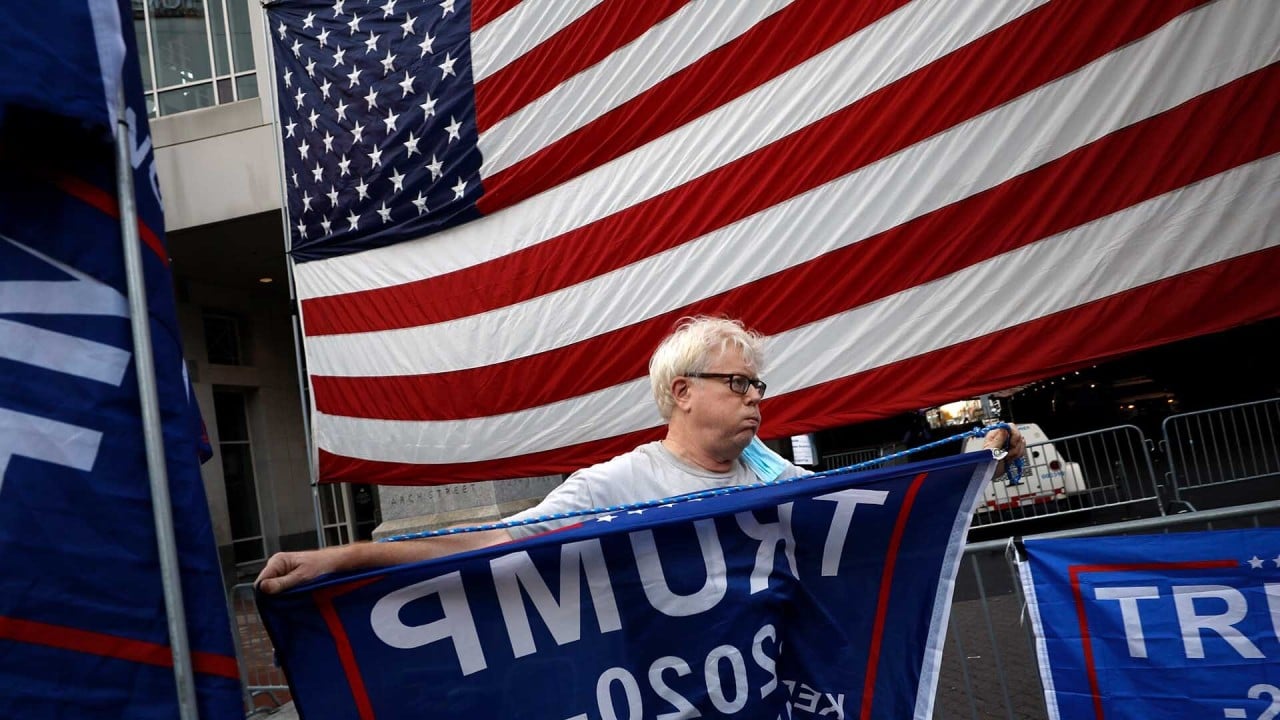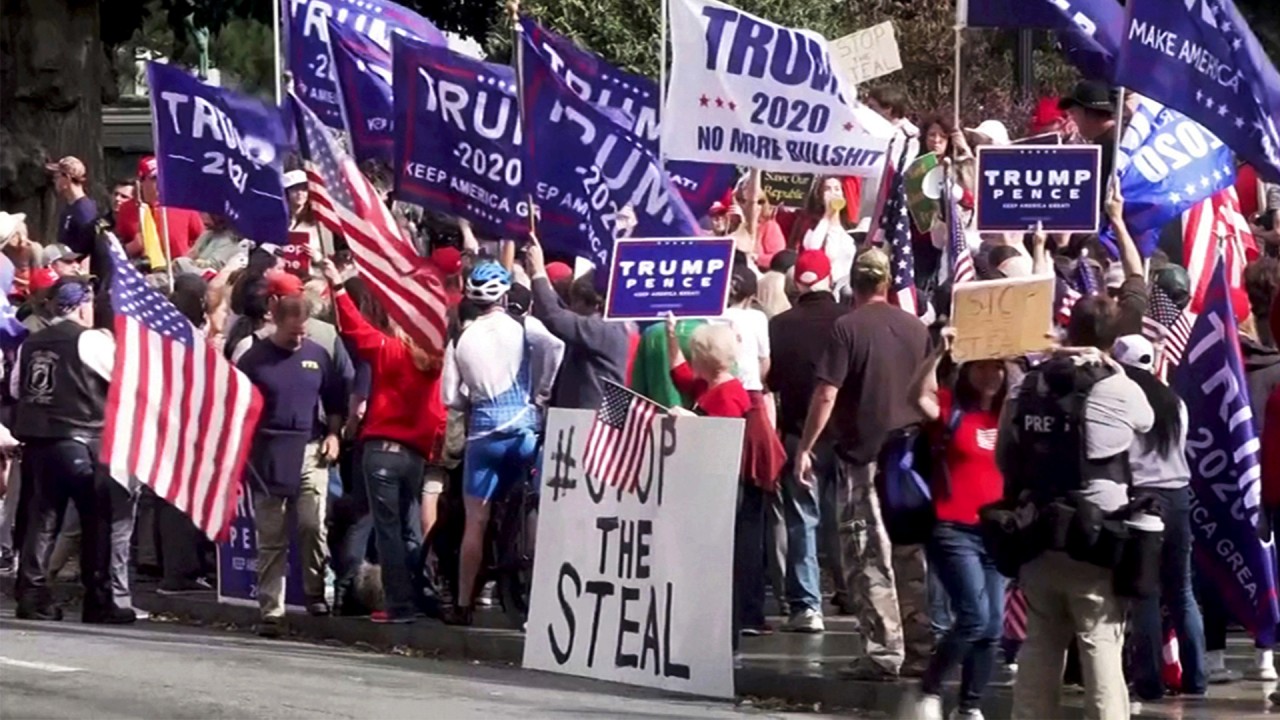
What the Christian evangelical grip on America means for China and the world
- Nurtured by Donald Trump, the Christian radical right – with its doomsday prophecies – threatens to bring civil war, deepen US rivalry with China and upend international relations and governance
The risk lies within the Christian apocalyptic world view. Some evangelicals believe they can and should expedite events to bring about the end of the world, culminating in an epic Armageddon battle of good vs evil that will usher in the kingdom of God. The Jerusalem move was important because it was one step towards heralding the second coming of Christ.
Many, including America’s founding fathers, were averse to Christianity’s supernatural revelations. Thomas Jefferson’s Bible is famously rid of references to miracles. But to protect religious freedom, Jefferson instituted a wall of separation between church and state, securing a private sphere for divergent beliefs.

This allows the governance of a public space free from theological interference. Over time, Americans began to rally around a new creed centred on civic virtues such as liberty and dignity, in what sociologist Robert Bellah calls American “civil religion”.
Since the 1973 Supreme Court ruling, Christians have waged a long and bitter battle to overturn Roe vs Wade. They felt besieged by a liberal establishment that seemed intent on subverting their Christian way of life.
The religious right’s embrace of Trump underscores the depth of their despair. The milieu has become so secularised that the sacred must be salvaged at all cost, even if it takes a flawed – and possibly – non-believer. For embattled evangelicals, to save Christian America, the end justifies the means.

02:01
Disbelief among Trump voters in Pennsylvania as Pence says US presidential election ‘ain’t over’
This is not just an American saga – the impact of the conservative Christian resurgence extends into the international arena. The evangelical imprint on US foreign policy began in the 1980s when Ronald Reagan startlingly called out the Soviet Union as the “evil empire”.
To be sure, America’s presumption to global leadership and sense of exceptionalism were sowed at its birth. Despite a disdain for supernaturalism, the founding fathers retained their conviction in Christian divine providence.

00:48
‘Frankenstein’ China requires more assertive global response, says US top diplomat Pompeo
Herein lies the crux of the US-China stand-off. In rebuffing liberal democracy, China is seen as subverting a divinely ordained world order and affronting a divinely anointed US global leadership. But the evangelicals set this superpower tussle within a wider theological narrative.
As the “chosen nation”, America is commissioned to evangelise the world in preparation for a new heaven and Earth. Thus any challenge to US supremacy, to wit China, is deemed as thwarting the advent of the kingdom of God.
In contrast, America’s founding fathers, despite their conviction in divine providence, had the sensibility to limit US exceptionalism to the earthly domain.

01:51
Trump supporters protest Biden’s presidential victory
Herein lies the danger of the evangelicals’ sway on the Trump administration. Christian eschatology (concerning the ultimate destiny of humanity) is as bewildering as it is unnerving. The pandora’s box of theological dogmas and religious impulses could defy and upend the norms of international relations and global governance.
America’s founding fathers envisioned a liberal, democratised world, a utopia on Earth, marking the buoyant “end of history”. For Christian fundamentalists, the ultimate lies in the heavenly, and to cross over to the other side, history must first meet a fiery end.

This alliance will end when Trump exits the White House. But the Christian right’s web of influence has infiltrated the American body polity and is likely to remain a potent force. The unsettling impact of Christian evangelicals on America and US-China rivalry will outlive Trump’s presidency.
Religion can be a spring of inspiration but it has also proven in much of history to be a source of tragedy. This is especially so when we surrender our rational faculties on the altar of unbridled faith. When this happens to the upper echelons of a nuclear-armed superpower, the consequences could prove dreadful.
Peter T.C. Chang is deputy director of the Institute of China Studies, University of Malaya, Kuala Lumpur, Malaysia

